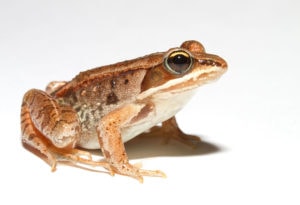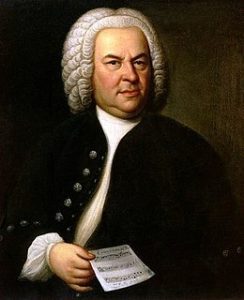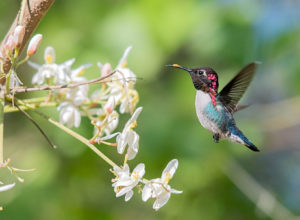 Around and about the first of March, I decided I would like to try to learn something new every day. My parameters were two-fold: it could not be something that was simply new information about a politician or celebrity that would become old news quickly. Even more importantly, as time went on, no pandemic updates. The second guideline was a bit fuzzier: it had to be something I had never known before. The reason that is fuzzier is due to the fact that I am in my late seventies, which means that I may have known it once but have since forgotten it!
Around and about the first of March, I decided I would like to try to learn something new every day. My parameters were two-fold: it could not be something that was simply new information about a politician or celebrity that would become old news quickly. Even more importantly, as time went on, no pandemic updates. The second guideline was a bit fuzzier: it had to be something I had never known before. The reason that is fuzzier is due to the fact that I am in my late seventies, which means that I may have known it once but have since forgotten it!
When I began this exercise, sheltering and social distance orders weren’t in place. Now that we are isolated for the time being, it’s one way to build a regular practice into what can sometimes be a long day.
What follows is a list of some of those learnings. I have gleaned them from such diverse sources as travel and museums (before March 12), Jeopardy, spring walks, the NY Times, novels, place names and the dictionary, to name a few. The facts are random; some fascinating, some trivial or even apocryphal; others memorable or amusing. I expect that many of you already know a few of them. Take what appeals to you and forget the rest. Then, if so inclined, start your own list of something new you learn each day.
In no particular order, here’s a sampling:
-Picasso, Matisse, Gertrude Stein and other well-known artists in the early 20th century designed many of the costumes and sets for the Ballets Russes under Serge Diaghelev.
 -Wood frogs quack like a duck in early spring.
-Wood frogs quack like a duck in early spring.
-A casino originally meant an assembly hall for dances, a theater venue and a community meeting place, not a gambling house. The word derives from the Italian for house, “casa”, and means “little house.”
-The chickadee, a small songbird, can lay up to 13 eggs in one brood. (Imagine how small each egg is!)
-Blue-skinned people in Kentucky were descended from a French orphan whose parents both lacked an essential enzyme, resulting in congenital methemoglobinemia, which reduces the oxygen capacity in the blood, turning skin light blue and nails a dark blue. Perhaps they are the original “blue bloods!’
-Spain and Portugal have maintained essentially the same border between their countries since 1247.
-During the reign of Emperor Justinian in the 6th century C.E. 50 million people died from the plague. It was half the known world’s population. (As we are now in the midst of another plague , that’s what my husband would call, tongue in cheek,, a “cheerful earful”!)
-Natural blue dye can be extracted from red beets,
– When asked what we should communicate with extraterrestrial beings, should that opportunity ever arise, poet-philosopher Lewis Thomas responded’ “I vote for Bach, all of Bach, streamed out into space, over and over again. We would be bragging, of course, but it is surely excusable to put the best possible face on at the beginning of such an acquaintance. We can tell the harder truths later.” 
-Contrary to common belief, wolves are matriarchal, with an alpha female in each pack.
-Henry Flagler was an original partner in Standard Oil and he, not John D. Rockefeller, put up the initial $100,000 investment in the company.
-A brass monkey was a device for holding cannon balls on deck next to the cannon on a warship. Otherwise they would roll around the deck. When the brass froze, it contracted and the balls would be released from the frame. Hence the expression: ”it’s cold enough to freeze the balls off a brass monkey.” (I bet you thought it meant something else!)
-Synesthesia: the sensation of an image or a sound other than the one being stimulated. (Example: whenever I hear a blue jay’s autumn call, I can see my six-year old self standing in front of my house waiting for my ride to school.)
-The smallest bird is a bee hummingbird. It’s found only in Cuba and feeds up to 1,000 times a day.
So there you have it. If you are willing, please send me your discoveries as a comment to this post so I may add them to my collection. And perhaps publish some of them in the future. Happy explorations!

10 Responses
thanks for your entertaining and inlightinging “posts! Stay well and safe!
I heard the quacking frogs for the first time this spring! What a surprise!
Always an interesting read, your Papers. Some comments:
“Casita” would be “little house” in Spanish. “Casino” apparently comes from the Italian
“casino (n.)
1744, ‘public room for music or dancing,’ from Italian casino, literally ‘a little house,’ diminutive of casa ‘house,’ from Latin casa ‘hut, cottage, cabin,’ which is of uncertain origin. The card game (also cassino) is attested by that name from 1792. Specifically as ‘building for aristocratic gambling’ by 1820, first in an Italian context.”
Going or driving “balls to the wall” meant going “full speed ahead,” but without anatomical reference. The parallel throttle levers on a twin-engine aircraft have spherical handles so they can be adjusted simultaneously, keeping both engines synchronized. Pushing the throttle “balls” all the way forward toward the “dashboard” wall accelerates to full speed.
Defenseless animals are drawn to you.
Your smile is contagious.
You have the best laugh.
Someone is getting through something hard right now because you’ve got their back. Nice work.
On a scale from 1 to 10, you’re an 11.
Our system of inside jokes is so advanced that only you and I get it. And I like that.
You should be proud of yourself.